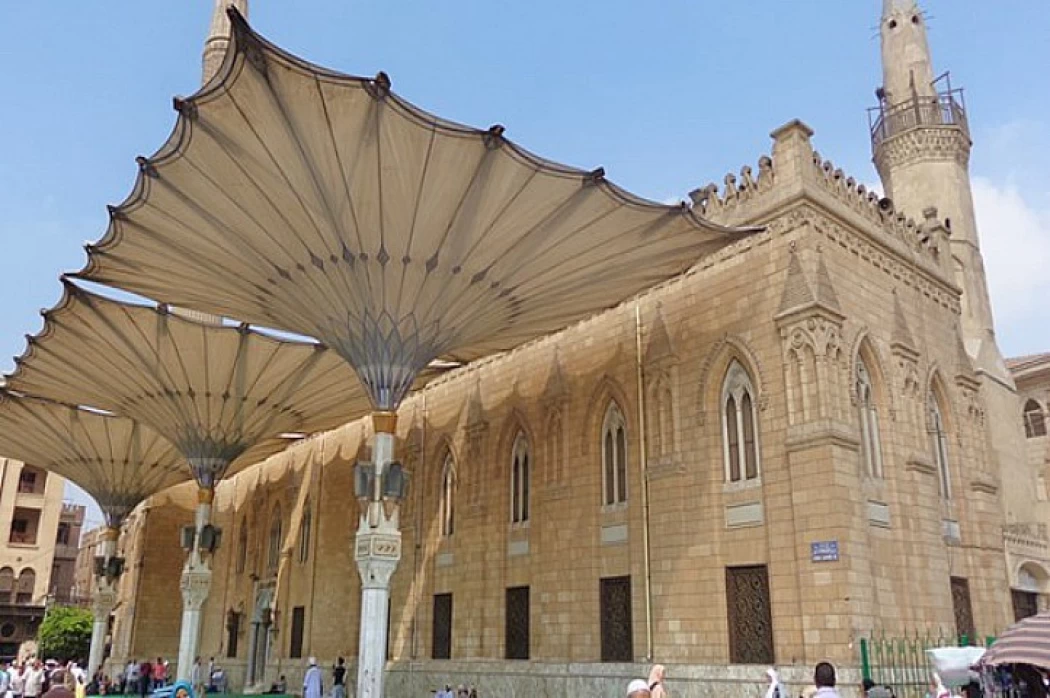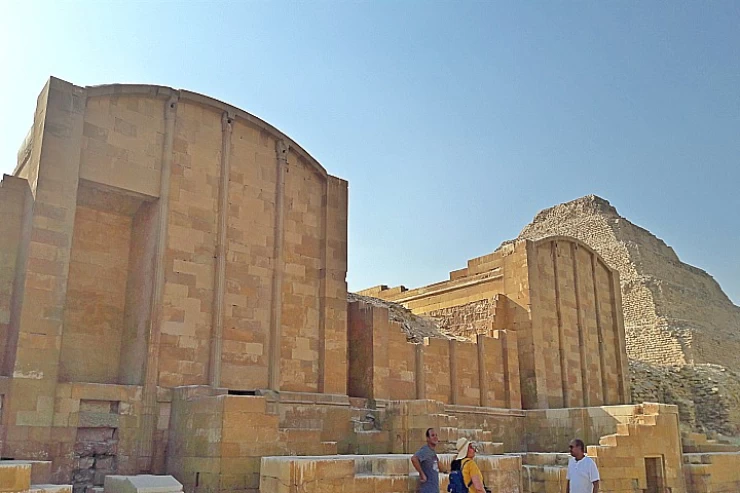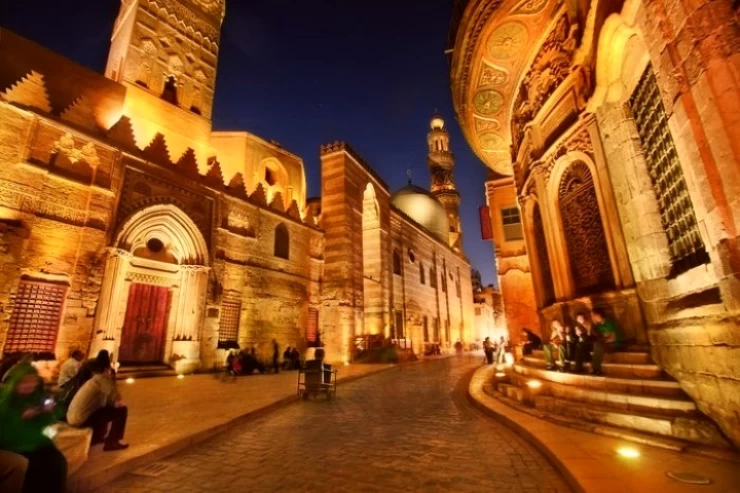
El Hussein Mosque
El Hussein Mosque in Cairo
Sayyidna al-Hussein Mosque was built in 1870 to replace a 12th-century mosque and is believed to retain one of the most sacred relics of all Islam: the head of Al-Hussein, nephew of the prophet Muhammad.
After the death of the prophet in the year 632 AD, the caliphate came under the control of the Umayyad clan.
The son-in-law of the prophet Ali took up arms claiming to be the natural successor and was killed. His son, Al-Hussein, organized a riot but died in 680 AD at the battle of Kerbala, Iraq, where his body is said to rest. Islam is still divided between the followers of Al-Hussein, the Shiites, and the Sunnis, who considered the Umayyads to be Muhammad's legitimate successors. In the ten-day annual Moulid of Al Hussein and other holidays, Midan al-Hussein is invaded by thousands of worshipers.
In Egypt, people can learn about Ramadan In Egypt. It's like a fun adventure where people explore and find out cool things about how people used to dress a long time ago.
Would you like to experience a journey through ancient Egyptian culture and mythology? you can make it happen and spend a day visiting Abydos, Giza, Luxor, Aswan to see the tombs of the pharaohs adorned with very clear, detailed and beautifully painted scenes of the various deities of ancient Egypt, as well as many other sites, cities, adventures and things to do in Cairo, you can try booking one of our Egypt travel packages and many private guided Cairo day trips from the airport and Egypt day trips to explore the capital of Egypt, Cairo you can check out many of the Egypt itineraries or take one of our complete Cairo day trips


















